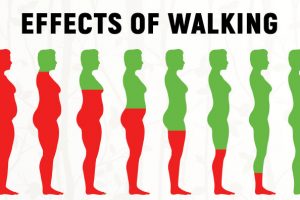Eggs are AWESOME! Yes, they’re loaded with healthy nutrients and can provide many health benefits. Can I ask you something – did you know that more than 90% of the egg’s calcium and iron are found in the egg yolk? The answer is YES, but the egg white contains almost half of the egg’s protein. Eggs have a high satiety index, which means that they’ll make you feel fuller.
One medium sized egg contains 6g of high-quality protein and other essential nutrients, with the exception of Vitamin C. This is why you should combine a fruit or orange juice with an egg and whole-wheat/low GI bread for breakfast. Eggs are packed with healthy nutrients, which makes them a valuable contributor to a nutritious diet.
1- STUDY CONFIRMS
A group of researchers have discovered that people who don’t consume eggs were more likely to fall short of Vitamin A, Vitamin E, and Vitamin B12. Eggs contributed 10-20% of folate and 20-30% of Vitamin A, Vitamin E, and Vitamin B12 for people who consumed eggs. This study also revealed that eggs are extremely important for all of us and you should eat them more often. Eggs are among the most nutritious foods on the planet. Eggs are one of the best sources of high-quality protein on the planet. Eggs provide your body with the whole package of amino acids required for building muscle mass and repairing tissues. Nutrition experts even recommend eating three whole eggs per day for a well-balanced diet.
2- Eggs vs Cholesterol Levels
Yes, it’s true that the egg yolk contains a high amount of cholesterol. But, the things are a bit more complex than that. The experts have never found a connection between normal egg consumption and coronary artery disease. What’s cholesterol? Cholesterol is actually a structural molecule that is an essential part of the cell membrane – of every single cell in the body. It’s responsible for the production of testosterone, estrogen, and cortisol, all of which are very important for the normal functioning of the body. Besides getting it from food, our body produces its own cholesterol in the liver. And when we eat foods that are rich in cholesterol the liver simply starts producing less of it, so the total amount of cholesterol in the body changes very little, depending on our diet.
You probably already know that there’s “good” (HDL) and “bad” (LDL) kind of cholesterol. According to the American Heart Association, the “bad” kind contributes to the production of thick, hard deposits that can clog arteries and make them less flexible, increasing the risk of heart attacks and other cardiovascular diseases. On the other hand, the “good” cholesterol actually helps remove the LDL cholesterol from the arteries by carrying it back to the liver, where it gets broken down and passed away from the body, therefore protecting the heart’s health.
3- BOTTOM LINE
Eggs actually contain high amounts of HDL cholesterol, while trans fats found in overly processed and deep fried foods contribute to rising levels of LDL cholesterol. So consuming whole eggs will not only bring vital benefits to your health – it can also reverse the negative effects of your junk food choices.
Continue to the Next Page …









